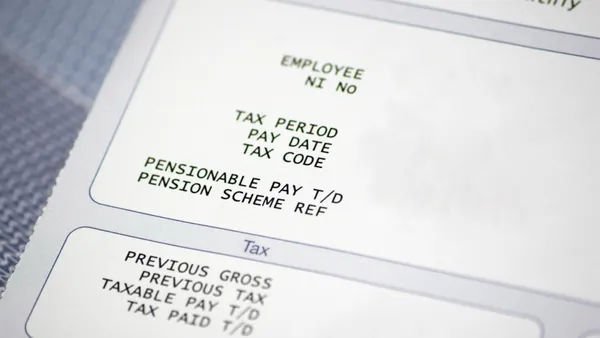Dive Brief:
- More workplaces are ditching passwords for biometrics when it comes to computer, phone and cloud logins, CNN Tech reports. Biometric authentication quickly confirms someone's identity through iris scans, fingerprints or faces. The technology is thought to provide security against hackers.
- According to Spiceworks, a professional network for IT workers, about 90% of employers will use biometric authentication by 2020, up from today's 62%. The most common form of biometric authentication is fingerprint scanning, which 57% of organizations use. Facial recognition is used the fewest, just 14%.
- Some state laws restricting biometric collection have hindered the tech's adoption, CNN Tech says. Others have notice or consent requirements.
Dive Insight:
Biometric authentication, or some combination of security measures, may well replace passwords one day. But, just like any other data point on employees, employers may need to consider how and when that data is used within the context of a data ethics policy. The European Union's General Data Protection Regulation (GDPR) is set to change how some employers approach employee data, and biometrics add a new variable.
Already, biometric technology has triggered legal problems for employers. A federal appeals court recently affirmed a jury award for an employee who requested an exemption from hand scanner use as a religious accommodation. And since new requirements were adopted in Illinois, employers have faced a flood of class actions lawsuits.
Employers looking to adopt the technology must, as always, understand the laws in their states prior to implementation.












